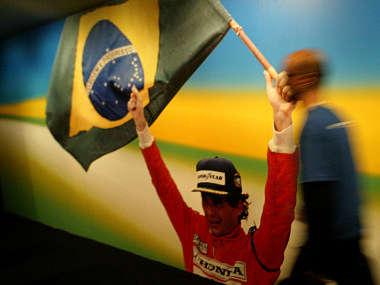Asif Kapadia’s documentary, Senna, has won the best documentary, and editing prize at the 2012 British Academy of Film and Television Arts (BAFTA) Film Awards. The documentary was based on Brazilian Formula One racing driver Ayrton Senna, who won the F1 world championship three times before his death at age 34. In the documentary category, the F1 feature beat Martin Scorsese’s George Harrison: Living in the Material World, and James Marsh’s Project Nim to win the top award. Film editors, Chris King, and Gregers Sall picked the editing category award against narrative features Drive, Hugo, The Artist, and Tinker Tailor Soldier Spy. Senna is distributed by Universal Pictures/Walt Disney Pictures, and produced by ESPN/Working. Manish Pandey was the writer. Using interviews and archive footage, Senna paints a dramatic portrait of one of Formula One’s most famous drivers. The film follows Senna’s struggles both on track against his nemesis, French World Champion Alain Prost, and off it, against the politics which infest the sport. [caption id=“attachment_211199” align=“alignleft” width=“380” caption=“A man walks past near a giant picture of the by late Brazilian F1 World Champion Ayrton Senna. Reuters”]  [/caption] No live TV racing footage was used in the movie. Instead, races were reconstructed from other bits of film. There are many scenes that were cut out of the movie which was originally has scope for forty minutes of interviews and talking heads, and forty minutes of Bernie [Ecclestone]’s archive. But when Kapadia cut the film, they were like £5 million over budget. So in the end, a lot of scenes had to be cut. There was a very powerful scene, Kapadia later recounted, about Tamburello [the corner at which Senna died]. “A few weeks before Imola, Senna is standing on the corner. You can see it. It’s Italian footage. He’s not happy with the track. It’s too bumpy. And he’s complaining to the guy who runs the track. And then we had the audio from Gerhard Berger, talking about himself and Senna going to Tamburello saying, “If they don’t change this corner, someone’s going to die here.” And it’s really a powerful scene,” Kapadia said in an interview. But Kapadia and Co didn’t want to do was make a film which is told in hindsight. Because that’s easy to do. So instead, the film attempted to put you in the cockpit with him. It succeeded and how! The memory of Senna lives on, not just through his deeds and genius but also through this movie. And that’s basically a job well done.
In the documentary category, the F1 feature beat Martin Scorsese’s George Harrison: Living in the Material World, and James Marsh’s Project Nim to win the top award.
Advertisement
End of Article


)

)
)
)
)
)
)
)
)



